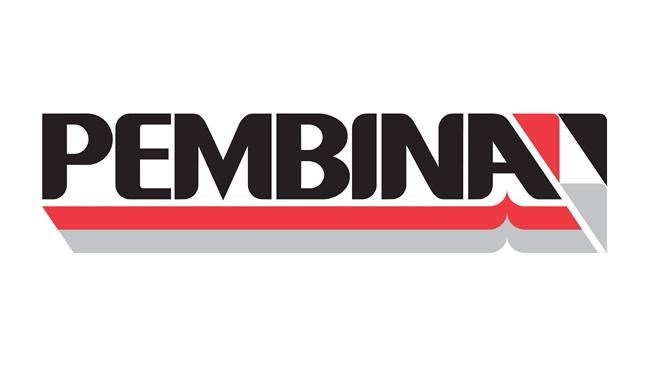CALGARY — The company behind the proposed Cedar LNG facility said this week itwill defer making a final investment decision on the project until mid-2024.
Pembina Pipeline Corp. and its project partner, the Haisla Nation, have been working to develop plans for a floating liquefied natural gas facility in Kitimat, B.C.
The facility, which would produce LNG for export to Asian markets, would be owned by the Haisla, making it the largest Indigenous-owned infrastructure project in the country.
The project partners had previously said a decision to go ahead could be made before the end of the first quarter, with onshore construction work starting as soon as the second quarter of this year.
But Pembina CEO Scott Burrows told analysts on a conference call Friday that the company now believes there are a number of issues that must be resolved before a final decision can be made, including ongoing negotiations for commercial offtake agreements, the obtaining of certain third-party agreements, and project financing.
"There’s just a lot of different agreements that have to be put in place. And so we’re continuing to progress detailed negotiations," Burrows said.
"But a lot of it is just due to time and the inter-dependency of so many different agreements on this project.”
The Calgary-based company announced the deferral after the close of markets Thursday, at the same time it reported fourth-quarter earnings of $698 million, or $1.21 per common share. Pembina also reported record full-year earnings for 2023 of $1.78 billion.
Cedar LNG has already obtained all major regulatory approvals and is advancing an agreement that would connect the floating facility to Coastal GasLink, the TC Energy-owned pipeline that will also carry natural gas to the Shell-led LNG Canada facility currently under construction.
LNG Canada will be this country's first liquefied natural gas export terminal, and its construction near Kitimat is nearing completion.
Another smaller LNG facility, Woodfibre LNG, has also received regulatory approval for construction near Squamish, B.C.
The capital cost of Cedar LNG was originally estimated at US$2.4 billion, but Pembina Pipeline chief financial officer Cameron Goldade said Friday the company now believes it will cost more than that.
“When we bought into that project, we announced the capital cost in the mid-$2-billion range, U.S. dollars," Goldade said.
"Obviously the world has changed since then. And I think we all recognize that it’s going to be higher than that. That said, you know, when we look at Cedar from a global competitiveness standpoint, we see that it continues to stack up very well."
As of Dec. 31, 2023, Pembina had invested approximately $200 million in Cedar LNG.
In a note to clients, RBC Capital Markets analyst Robert Kwan said he views Pembina's most recent quarterly earnings, as well as the update on Cedar LNG, as positive.
"Although we await additional details on the Cedar LNG project, we like the decision to defer the final investment decision until mid-2024, which demonstrates to us that the company is taking a methodical approach to managing project economics and especially project risk," Kwan wrote.
Proponents of a Canadian LNG industry say liquefied natural gas from Canada could help reduce global greenhouse gas emissions by replacing coal in countries that still rely on the dirtier fuel.
But environmentalists argue that LNG creates its own emissions through the liquefaction and transportation process, as well as through the drilling and flaring of natural gas in Western Canada.
They argue that building massive LNG terminals that require huge up-front capital investments essentially "locks in" future greenhouse gas emissions at a time when the world needs to be planning for a lower-carbon future.
While Canada's LNG industry has been slow to take off, the U.S. already has seven LNG terminals in operation, making it the largest LNG exporter in the world. Several more U.S. facilities are slated to come online in the next few years.
But last month, U.S. President Joe Biden paused approvals of new LNG export terminals in that country, citing climate risk as the reason. He said the current process the U.S. Energy Department uses to evaluate LNG projects doesn't adequately account for the impact of greenhouse gas emissions.
This report by The Canadian Press was first published Feb. 23, 2024.
Companies in this story: (TSX:PPL)
Amanda Stephenson, The Canadian Press



